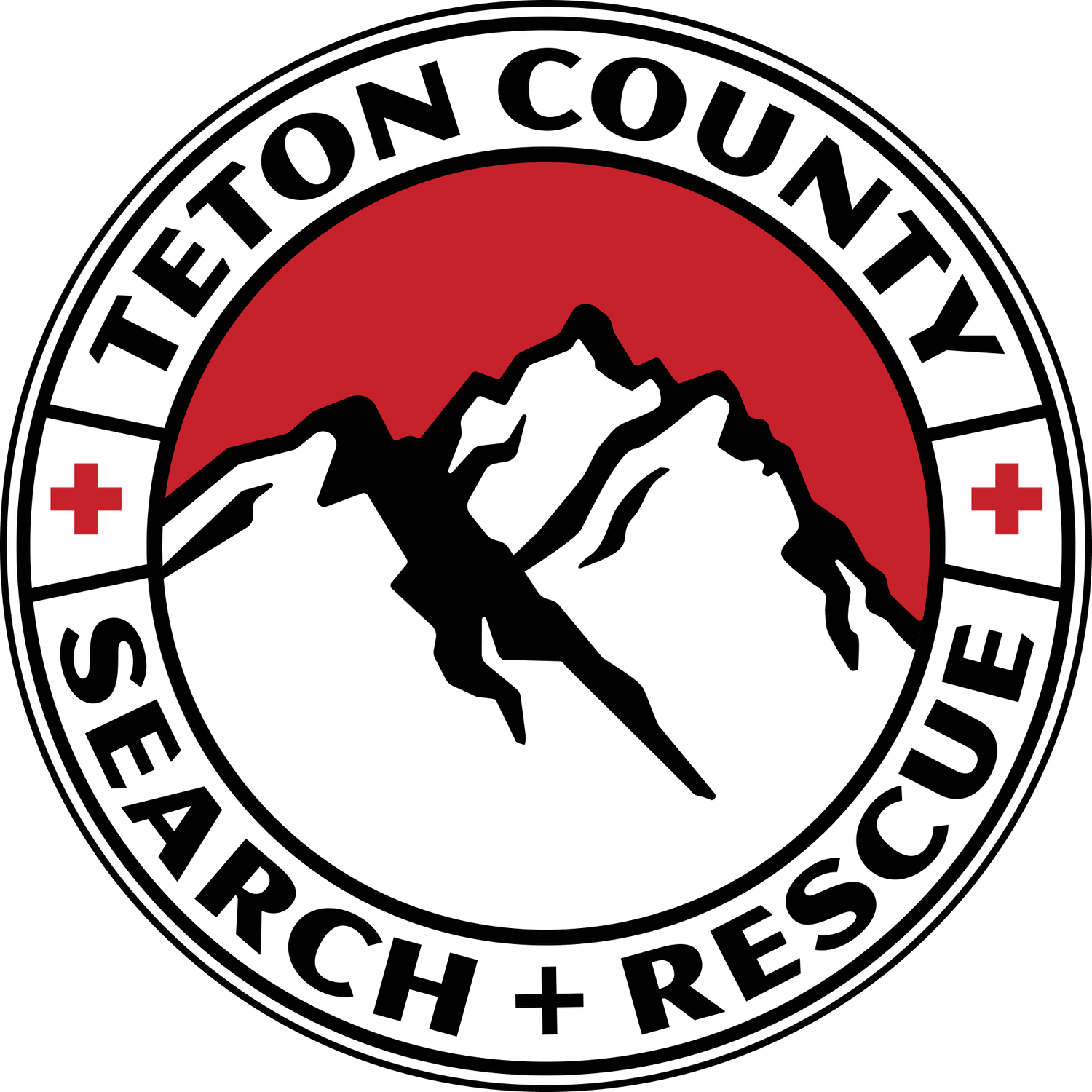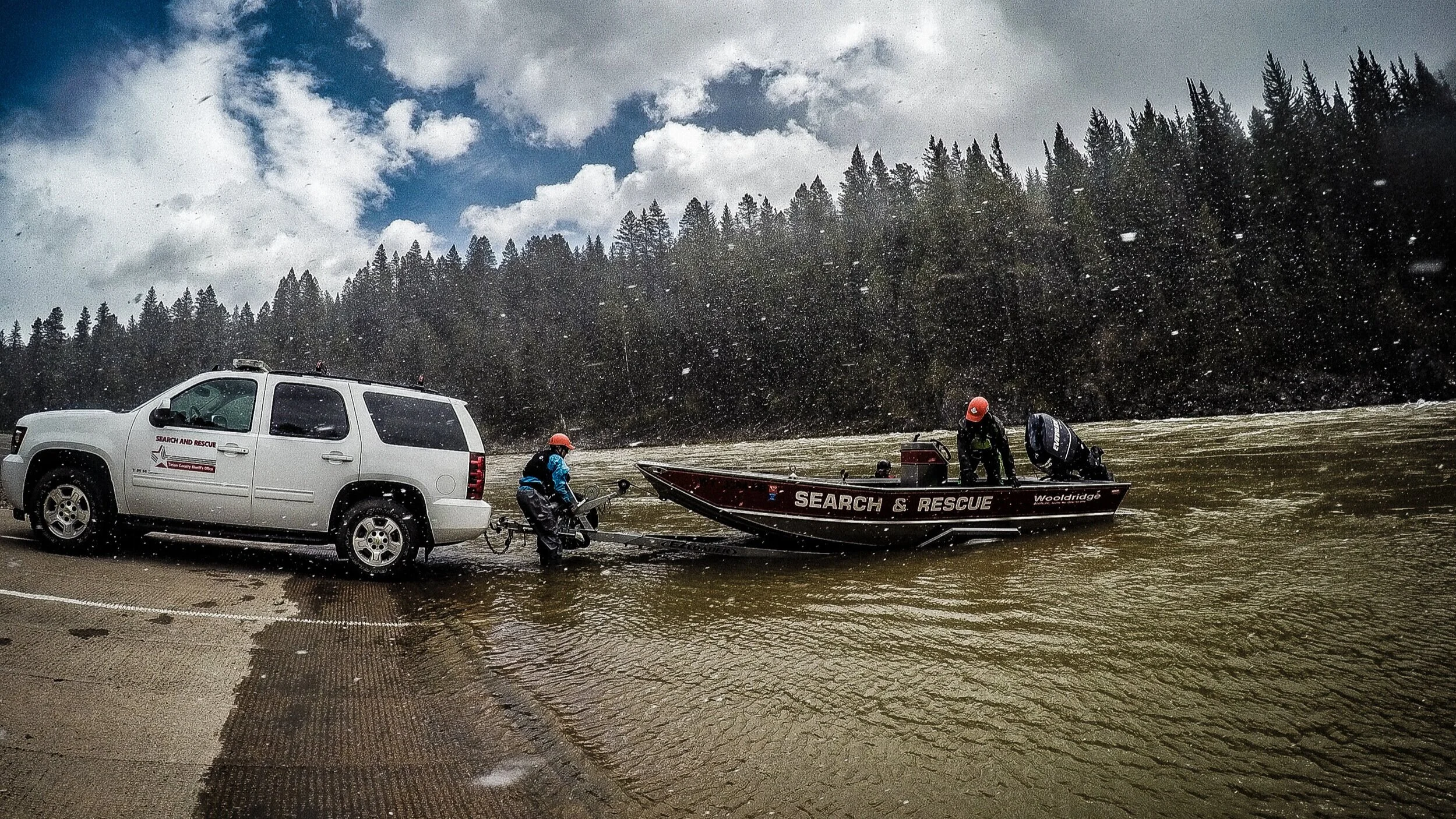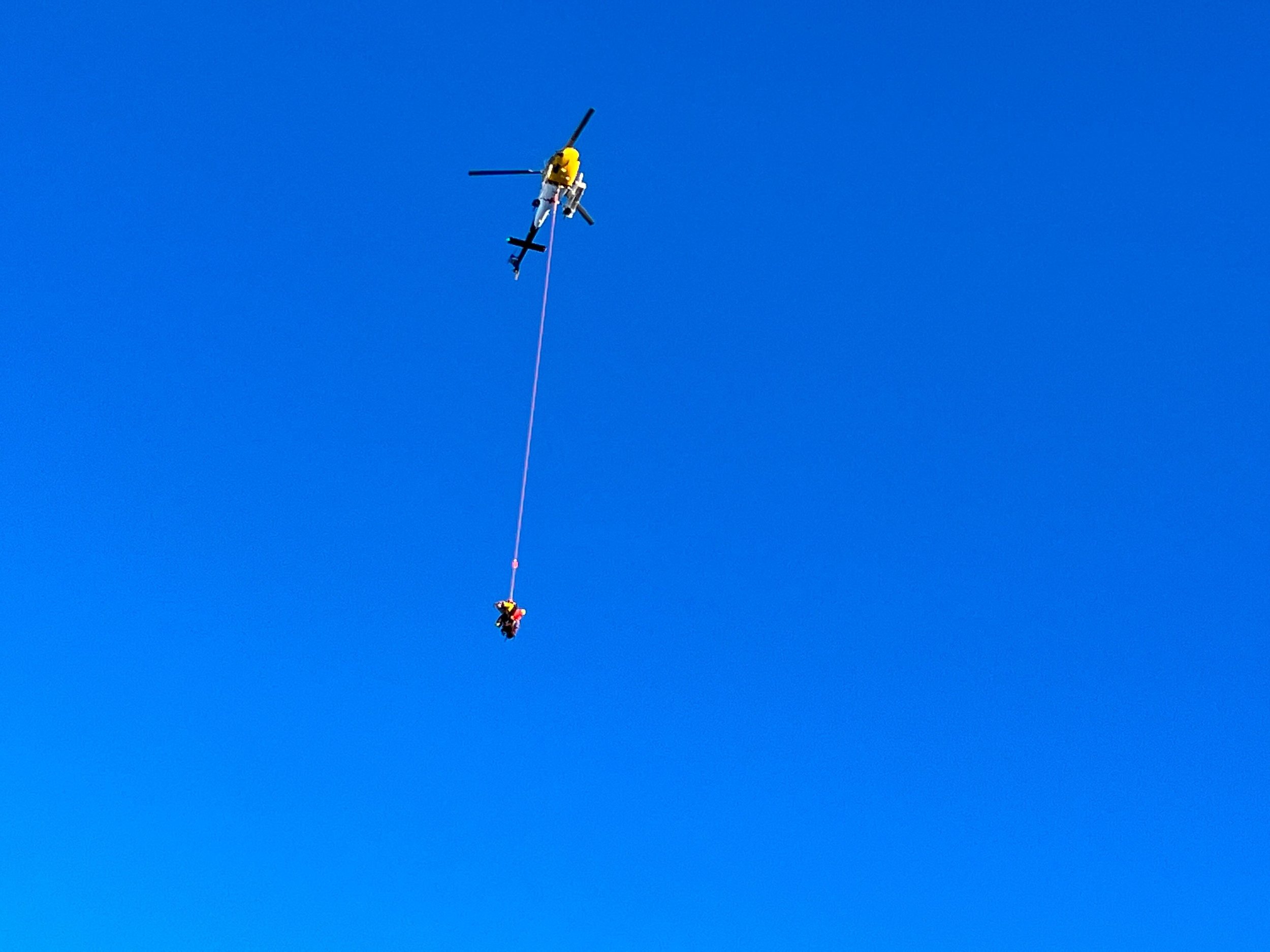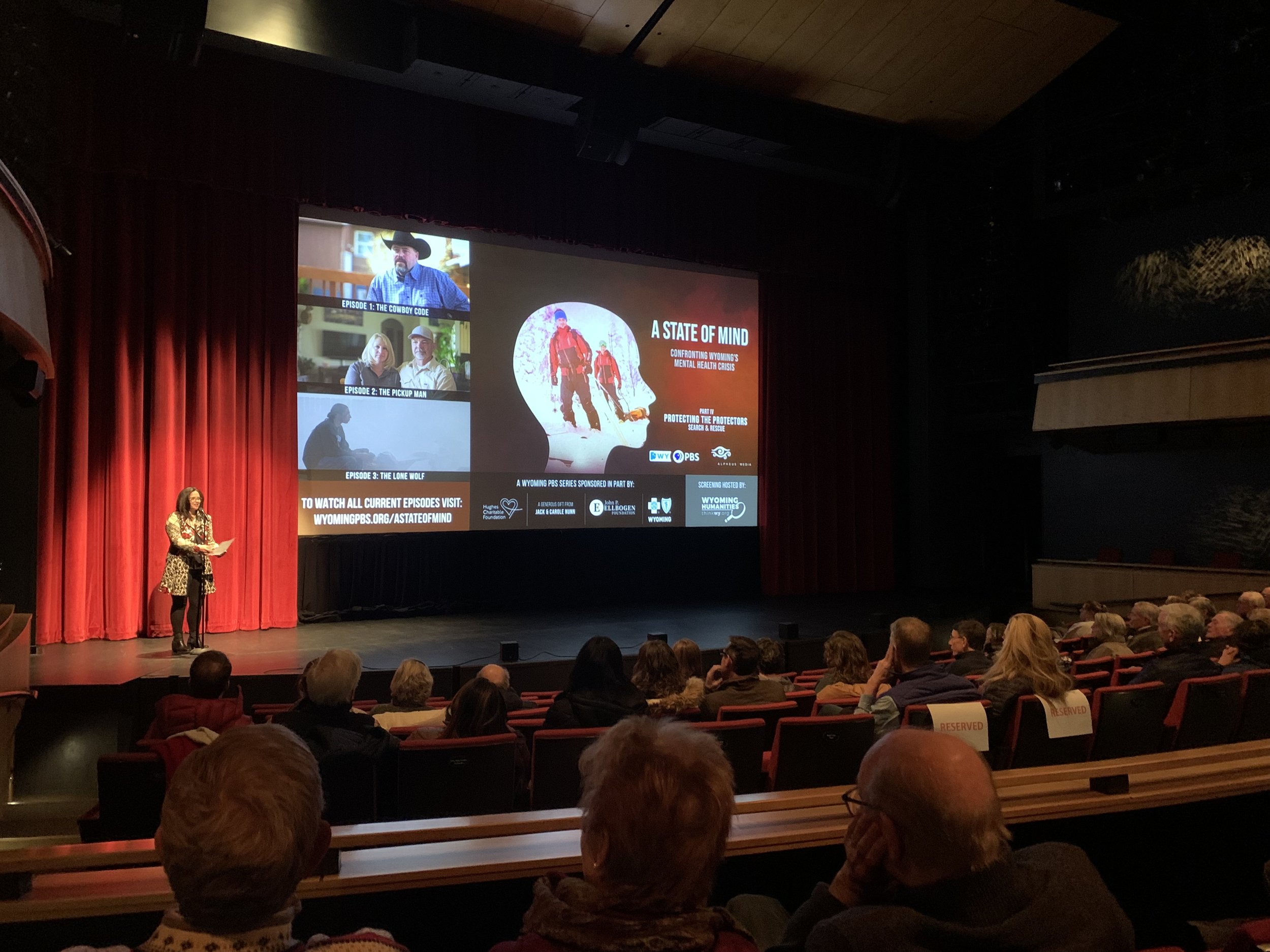Jackson, Wyo. — Four days. Four helicopter rescues.
That was the story this weekend for Teton County Search & Rescue. Starting on Thursday, February 9, there were several close calls in our surrounding backcountry that required TCSAR volunteers to utilize the Search & Rescue helicopter. Our team is grateful for the partnerships with the numerous responding agencies—Teton County Dispatch, Grand Teton National Park, Jackson Hole Mountain Resort Ski Patrol, and Fremont County Search & Rescue—that helped bring these near-misses to successful closure.
All four rescues would have been challenging to pull off—if not impossible—without the use of the SAR helicopter and the highly trained volunteers and personnel.
These incidents should encourage all of us to reflect and consider what the consequences would have been had rescue personnel and resources not been available. We want to take this opportunity to remind everyone to know the avalanche forecast, consider your terrain choices along with weather and time of day, and plan your backcountry adventures accordingly.
Incident summaries from the four rescues are below.
TCSAR volunteers short-haul an injured snowmobiler on Togwotee Pass on February 10, 2023. Photo: TCSAR
On Thursday afternoon, February 9, TCSAR was called with a request from Jackson Hole Mountain Resort Ski Patrol for a short-haul helicopter operation to help an injured skier in Granite Canyon. A woman had injured her knee while descending Endless, a 2,000-vertical-foot couloir that sits within Grand Teton National Park. TCSAR accepted the helicopter request, mobilizing a flight plan that consisted of one TCSAR volunteer and two Jenny Lake Climbing Rangers. The interagency team was able to fly to the scene and successfully short-haul the patient to the landing zone (LZ) at the base of Teton Village.
At 2:36 p.m. on Friday, February 10, TCSAR learned of a snowmobile accident on Togwotee Pass. A woman in her 60s had been riding her snowmachine with a guided group when she reportedly hit a tree, suffering severe injuries to both legs. Given the nature of the accident and remote location, the team decided that a helicopter response was the best option.
TCSAR assembled a short-haul helicopter team, which included a ranger from Grand Teton National Park. TCSAR volunteers also loaded up trucks and snowmobiles to drive to Togwotee as a backup ground response.
After short-hauling an injured snowmobiler to higher medical care on Friday, the heli team flew back to the hangar in Jackson before sundown. Video: TCSAR
The initial report put the accident site about 4 miles from the highway on the Continental Divide Trail (CDT), but upon flying to the scene, the heli team was unable to find the reporting party at the given location. The heli circled the area and eventually spotted the injured party about 2 miles from the highway on the Continental Divide Alternative (CDA) Trail.
The heli team dropped two short-haulers off to rig the ship for a short-haul operation. The heli then lifted the short-haulers to the patient, where they packaged her for transport. The team then flew the patient and the rescuers to a landing zone (LZ) in the parking lot of the Black Rock Ranger Station, where the patient was transferred to a waiting ambulance. The teams made plans to return back to Jackson before sundown and drop off the GTNP ranger en route, completing the mission in 4 hours, 9 minutes.
At 2:47 p.m. on Saturday, February 11, TCSAR was alerted to an injured skier in the backcountry south of Jackson Hole Mountain Resort. The skier had triggered a small avalanche at the top of a steep, narrow couloir located on the south-facing side of No Name Canyon. The slide carried the man, a local resident, through the couloir, depositing him at the bottom with an injured shoulder. Due to the steep and inaccessible nature of the accident site, TCSAR decided to send the helicopter short-haul team. After arriving on scene, the helicopter was able to land on the snow on a nearby ridgeline, and two TCSAR volunteers helped the injured skier walk to the ship for an internal transport to the LZ at the base of Teton Village. The volunteers completed the mission in 2 hours, 13 minutes.
TCSAR’s rescued an injured skier who had been caught in an avalanche through a narrow couloir in the southern Tetons on Saturday, February 11. Video: TCSAR
At 9:30 p.m. on Saturday, TCSAR was called by Fremont County Search & Rescue for assistance in locating a missing snowmobiler near the Union Pass Road. Fremont County SAR had spent most of the afternoon looking for the man, and was requesting helicopter assistance for the continued search on Sunday morning.
At first light on Sunday, TCSAR dispatched the helicopter with three volunteers and the pilot. The team conducted an aerial search while utilizing LifeSeeker, an aerial cellular transmitter that can pick up mobile phone signals even where there is no service. The team was in the air for roughly an hour and a half before they spotted the man waving his arms. At that point, TCSAR was able to provide directions to the patient for a Fremont County SAR ground team on snowmobiles. They found the man, uninjured but very cold, and snowmobiled him out to a warming hut. The TCSAR team returned to the hangar in Jackson.
TCSAR helped locate a missing snowmobiler who’d spent the night in the backcountry along the boundary of Teton and Fremont counties. Photo: TCSAR




